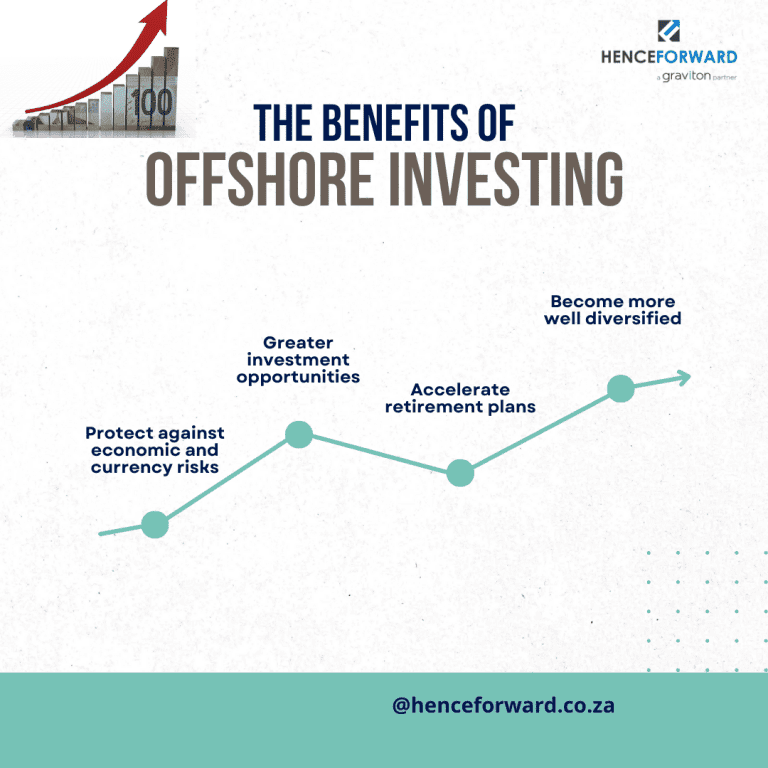Discovering Just How Investing Off Coast Works: A Comprehensive Overview
Spending offshore offers a complex landscape of challenges and possibilities. Understanding the various sorts of offshore accounts is vital for any person considering this route. The advantages, consisting of improved personal privacy and asset protection, are significant. Nonetheless, lawful and tax obligation effects call for careful interest. As investors seek to enhance their profiles, the steps to develop a viable offshore financial investment strategy come to be essential. What are the crucial elements that must navigate to do well in this venture?
Comprehending Offshore Accounts and Their Kinds
What drives people and organizations to consider offshore accounts? The allure of monetary personal privacy, property security, and possible tax obligation advantages typically brings in the focus of those looking for to handle their wide range extra tactically. Offshore accounts, typically established in foreign territories, can be found in different types. Individual accounts deal with specific demands, using solutions like cost savings, financial investment, or retirement planning. Organization accounts, on the various other hand, serve firms aiming to assist in global transactions, improve personal privacy, or maximize tax obligations. Trust accounts give an extra layer of defense, enabling people to protect their assets for future beneficiaries. Each type of offshore account offers unique attributes, often affected by the governing setting of the host country. Comprehending these differences is vital for individuals and services, as the choice of account kind can especially affect their economic techniques and compliance with global regulations.
Benefits of Offshore Spending
While several financiers seek possibilities to expand their portfolios, offshore spending presents distinctive advantages that can enhance financial growth and safety. One significant advantage is the possibility for property defense. Offshore accounts can guard financial investments from political instability or economic declines in the investor's home country. In addition, offshore financial investments often offer accessibility to global markets, permitting capitalists to touch into emerging economic climates and markets that might not be offered domestically.Another substantial benefit is tax obligation performance. Numerous overseas jurisdictions supply favorable tax programs, which can minimize tax liabilities and boost overall returns. Moreover, overseas investing can enhance privacy, as certain jurisdictions apply rigorous privacy laws.Lastly, overseas accounts can facilitate wealth administration methods by supplying a wider range of investment options, consisting of alternative possessions such as actual estate and assets. Collectively, these benefits make overseas investing an appealing selection for those seeking to strengthen their economic portfolios.

Legal and Regulative Considerations
Steering with the legal and regulatory landscape of offshore investing requires careful focus and understanding. Investing Off Shore. Financiers need to navigate a complex web of regulations that vary markedly from one territory to an additional. Compliance with neighborhood policies is crucial; failure to do so can lead to serious fines, including penalties and jail time. Additionally, knowing the lawful frameworks governing foreign financial investments is essential for assuring the defense of assets and keeping functional legitimacy.Key factors to consider include comprehending the governing needs for establishing offshore entities, such as companies or trust funds, and adhering to anti-money laundering (AML) and know-your-customer (KYC) guidelines. Investors ought to likewise understand reporting obligations in their home country, visit homepage as numerous countries require disclosure of overseas holdings. Involving with lawyers experienced in overseas financial investment can supply indispensable guidance, aiding financiers to alleviate dangers and secure compliance with appropriate legislations and guidelines while maximizing their investment potential

Tax Implications of Offshore Investments
Comprehending the legal and governing considerations of overseas investing normally brings about an evaluation of the tax implications related to these financial investments. Offshore investments can use significant tax advantages, including lowered tax rates and the potential for tax deferment. However, financiers should navigate intricate tax obligation laws in their home nations, as lots of territories call for taxpayers to report international revenue and assets.For united state people, the Foreign Account Tax Compliance Act (FATCA) mandates the reporting of offshore accounts, while various other countries have comparable needs. Failing to comply can lead to extreme fines. Furthermore, certain offshore funds may go through special tax obligation therapies, such as Passive Foreign Financial Investment Business (PFIC) policies, complicating financial investment strategies.Investors need to take into consideration speaking with tax experts to recognize implications certain to their scenarios and warranty conformity with both from this source worldwide and residential tax obligation legislations, eventually maximizing the benefits of their offshore financial investments while minimizing threats.
Actions to Get Started With Offshore Spending
Several capitalists looking for to diversify their profiles turn to offshore investing as a practical choice. To start, one need to conduct thorough research study on potential overseas territories, considering aspects such as regulatory atmosphere, taxation, and financial investment opportunities. Investing Off Shore. After picking an appropriate place, capitalists must establish an offshore account, which commonly requires documents verifying identification and resource of funds.Next, financiers typically engage with an offshore financial investment or an economic consultant company acquainted with local legislations and market characteristics. This partnership can assist in crafting a tailored financial investment approach that straightens with individual goals and risk tolerance.Once the approach remains in place, capitalists can continue to choose details assets or funds for financial investment, guaranteeing they evaluate efficiency and risks routinely. Maintaining compliance with both regional and home country regulations is necessary for effective offshore investing, needing recurring diligence and possibly regular appointments with legal professionals.

Frequently Asked Inquiries
Just how Do I Pick the Right Offshore Jurisdiction?
Choosing the right overseas jurisdiction includes assessing factors such as governing atmosphere, tax benefits, political stability, and convenience of working. Looking into each option extensively guarantees enlightened choices that line up with specific investment objectives and run the risk of resistance.
What Sorts Of Assets Can I Hold Offshore?

Are There Dangers Connected With Offshore Investing?
The threats associated with overseas investing include legal complexities, regulatory adjustments, money fluctuations, and potential political instability. Financiers should meticulously evaluate these elements to reduce threats and assurance compliance with global legislations and policies.
How Can I Accessibility My Offshore Finances?
To gain access to overseas funds, individuals commonly need to call their economic establishment, offer essential recognition and documentation, and adhere to recognized protocols for fund transfers, guaranteeing compliance with both regional and international guidelines governing offshore financial investments.
What Are Common Mistaken Beliefs Regarding Offshore Accounts?
Typical mistaken beliefs regarding offshore accounts consist of ideas that they are exclusively for tax obligation evasion, lack of guideline, or only easily accessible to the wealthy. In truth, they can be genuine monetary devices for varied people. In addition, offshore investments often offer access to global markets, permitting financiers to tap right into emerging economic climates and sectors that might not be available domestically.Another significant advantage is tax obligation performance. Overseas investing can improve privacy, as certain jurisdictions implement strict confidentiality laws.Lastly, overseas accounts can help with riches administration methods by supplying a bigger variety of financial investment alternatives, consisting of different properties such as look at this site actual estate and assets. Understanding the legal and regulatory factors to consider of overseas investing normally leads to an exam of the tax obligation implications associated with these investments. Offshore financial investments can supply significant tax benefits, consisting of decreased tax prices and the capacity for tax obligation deferral. After selecting an ideal place, financiers should establish an offshore account, which usually requires documents showing identity and resource of funds.Next, investors usually involve with a monetary advisor or an overseas investment firm acquainted with local regulations and market characteristics.
Comments on “7 Surprising Benefits of Investing Off Shore You Might Be Overlooking”